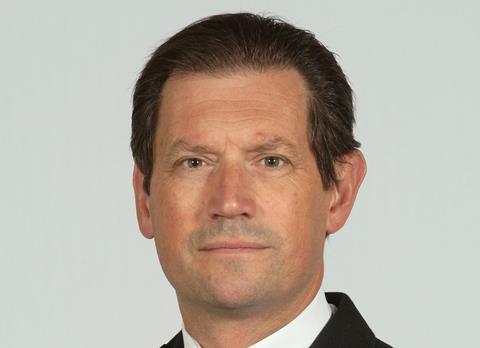Nick Ephgrave, formerly the assistant commissioner of the Metropolitan Police, has taken over as the new director of the Serious Fraud Office (SFO) in a departure from tradition, as the role has historically been held by lawyers. With his extensive background in policing and investigations, many anticipate the 'Ephgrave era' will usher in a more proactive SFO, focused on launching new investigations.

However, he is inheriting a complex set of challenges and responsibilities from his predecessor, Lisa Osofsky, whose five-year term was marred by controversies, most notably her role in the Unaoil bribery case.
As Ephgrave takes the reins, these are the key items on his to-do list:
Navigating disclosure
Recent high-profile trial collapses and the quashing of unsafe convictions have exposed the SFO’s struggle with managing its duties of disclosure in data-heavy cases. While Ephgrave will have experience dealing with disclosure in his policing career, he has in the past discussed the difficulties presented by the seizure of digital devices containing the equivalent of 30,000 pages of evidence. The SFO is a different league, and he will need to ensure that the SFO is not dogged by disclosure issues in the cases it has decided to prosecute.
Balancing corporate and individual prosecutions
One of the criticisms of Osofsky’s tenure was her emphasis on corporate resolutions over holding individuals accountable. Ephgrave faces pressure to prosecute individuals in cases where senior employees have been implicated in wrongdoing. The SFO has indicated its intent to decide whether to charge 11 former Glencore employees by the end of 2023. How Ephgrave chooses to act will be indicative of his direction for the SFO, which has thus far secured notably few individual convictions following corporate resolutions.

Adapting to new legislation
Ephgrave will be feeling the pressure to prosecute individuals and secure their conviction while navigating incoming significant legislation. The Economic Crime and Corporate Transparency Bill will soon expand the ‘identification doctrine’ and introduce a new corporate offence of failing to prevent fraud, which could divert Ephgrave’s attention towards corporate wrongdoing. While such an approach would likely bring substantial gains to the Treasury through corporate penalties, he will be under pressure to ensure this is not at the expense of pursuing cases against individuals.
Rebuilding trust and fostering a positive culture
Ephgrave brings experience in addressing toxic organisational cultures from his time in the Metropolitan Police. This expertise will be invaluable as he tackles issues such as high staff turnover and low morale within the SFO, as highlighted by Sir Calvert-Smith’s 2022 report. Improving working conditions and trust is essential for consistency and oversight in the investigation, disclosure, and review processes.
Shaping the future of the SFO
Calls to merge the SFO with other agencies such as the CPS or NCA have grown louder in recent years, challenging the agency’s unique ‘Roskill model,’ which integrates investigators and prosecutors. While Ephgrave’s stance on such reforms is unknown, he must secure the necessary resources to implement recommendations from independent reports and demonstrate the model’s effectiveness.
Ephgrave faces a formidable task of defining the SFO’s path forward and preserving its status as an independent and effective investigative and prosecuting agency. All eyes will be on his first moves as director as he starts to shape the future of the SFO.
Anoushka Warlow is a partner with London firm BCL Solicitors































1 Reader's comment